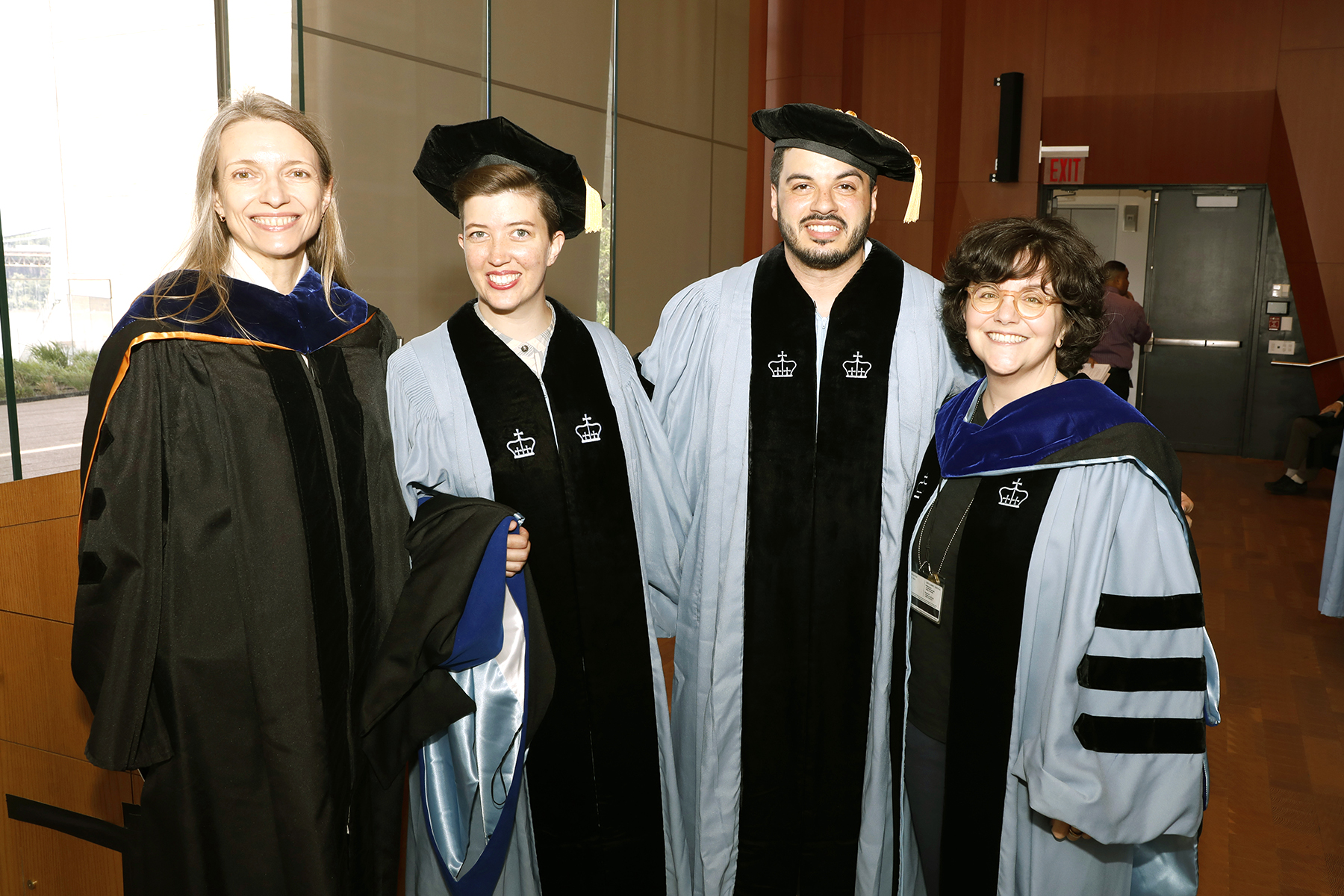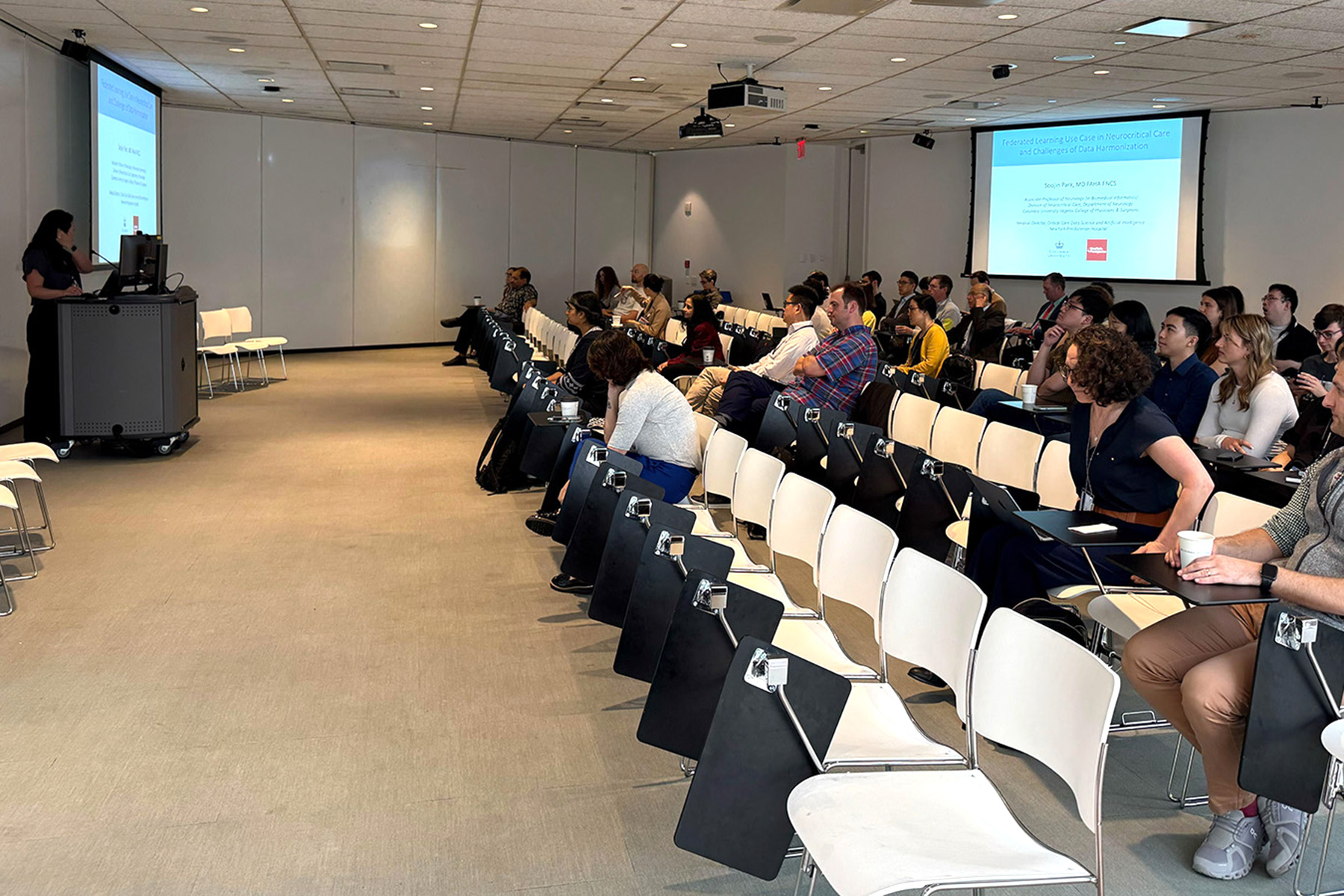Latest Updates From DBMI

Faculty Leverage Machine Learning for Early Detection of Mental Illness
Columbia researchers are using machine learning to detect early signs of mental illness—analyzing speech, social media, and sensor data to support faster intervention and better outcomes. We’re proud to see Shalmali Joshi, PhD, a faculty member in the Department of Biomedical Informatics and part of the AI at VP&S Initiative, leading this important work at the intersection of AI and mental health.

DBMI Celebrates PhD, MA and Clinical Fellowship Graduates From Class of 2025
DBMI Celebrates PhD, MA and Clinical Fellowship Graduates From Class of 2025 The Department of Biomedical Informatics at Columbia University celebrates the 17 trainees who completed their PhD, MA or

AI at VP&S Hosts Federated Learning for Health Workshop: Why, What, How?
AI at VP&S Hosts Federated Learning for Health Workshop: Why, What, How? The AI at VP&S Initiative hosted a workshop on May 23 that aimed to demystify federated learning (FL)

Welcome To Columbia DBMI
Located on the Columbia University Medical Center (CUMC) campus, the Department of Biomedical Informatics (DBMI) is both an academic department within Columbia University and a provider of information services to NewYork-Presbyterian Healthcare–a major healthcare provider in greater New York. DBMI faculty is intimately involved in the design, selection, implementation, and management of clinical systems at CUMC. Chaired by George Hripcsak, MD, DBMI is dedicated to achieving the finest basic research and applied work in informatics. Faculty research in the department includes the development and evaluation of innovative information technologies. DBMI’s faculty members and students work in a highly collaborative environment, applying informatics from the atomic level to global populations.
DBMI makes a solid commitment in its research and education to a broad view of biomedical informatics. We believe that biomedical informatics is best viewed as a basic biomedical science, with a wide variety of potential areas of application. Biomedical informatics is by its nature an experimental science, characterized by posing questions, designing experiments, performing analyses, and using the information gained to design new experiments.
About Us
This would be a video about Columbia DBMI … the primary role would be to inform first-time visitors and prospective students
Training At DBMI
The goal of Columbia University’s training program is to advance health care through the advancement of the discipline of biomedical informatics. Our training program provides a research-oriented curriculum with rigorous formal training in informatics and data science integrated with exposure to real-world systems in clinical and research settings at our University, in our community, and around the world. Most of our graduates continue to advance the field through research as faculty members in academic institutions or through leadership and service as executives within health care facilities.
The Biomedical Informatics curriculum is designed to meet the needs of a wide range of students with different backgrounds and career goals, while providing a uniform foundation in the essentials of the field. There are several types of degrees and training opportunities: MA, PhD, MD-PhD, NLM Funded Postdoctoral Fellowship for MD and PhD graduates, Postdoctoral Research Scientist Positions for PhD graduates, ACGME accredited Clinical Informatics Subspecialty Fellowship for MD graduates, and a Health Information Technology Certification of Professional Achievement.
- We have a flexible, in-depth curriculum to train students in biomedical informatics and health data science. With the explosion of biomedical knowledge and health-related data coming from the literature, the Internet, and the Electronic Health Record, we recognize there is a vital need and an exciting opportunity to develop new methods that incorporate massive amounts of data and knowledge to derive new biomedical knowledge, and then to use the knowledge to improve human health
- We instill principles of rigor and reproducibility in research
- We teach students the methodological principles of “doing” informatics research as part of the biomedical and health ecosystems
- We create and foster an inter-disciplinary community of students, faculty, and partners
- We have a long and distinguished 27-year history of funding by the National Library of Medicine (NLM) to support pre and postdoctoral fellows as part of our training program. Fellows join a rich network of NLM supported programs, attend annual conferences to present their research, and are pioneering alumni who found and lead informatics programs nationwide.
DBMI and Data Science
Biomedical informatics combines data science, human factors, and many other methodology fields with application areas in biomedicine and health. The basic informatics research goal is to search for new knowledge about information, information systems, and behavior from existing knowledge and data. Its applied research goal is to use this informatics knowledge for practical ends across a wide range of scales in biomedicine, health care, clinical research and public health. Informatics research can lead to new algorithms and ontologies, basic discoveries in the application area (e.g., discovery of roles of gene in a disease) and concrete outcomes (e.g., changes in health care practice).
DBMI is actively involved in the Columbia Data Science Institute (DSI). DBMI’s chair, Dr. George Hripcsak, authored one of the Institute’s five cores, health analytics, and sits on its executive committee. Prof. Noémie Elhadad, DBMI’s graduate program director, is the director of its health analytics center. Our students enroll in DSI courses and our faculty are close collaborators.





